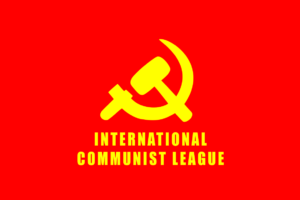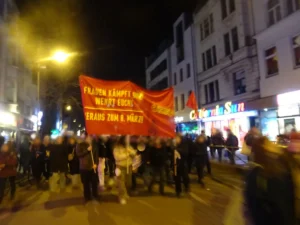
Dengue epidemic in Brazil: test tube for entomological warfare?
Hereby we publish a summarization of an article published in A Nova Democracia.
In this year, 2024, the worst numbers of dengue infections in the history of Brazil have been registered. A Nova Democracia (AND) reports that in relation to the first months of the year, “a 315% increase in relation to the year of 2023 was registered. In absolute numbers that represents an increase of 165,839 cases to 688,461, which would mean almost the half of last year’s total cases. Among those, more than 5,000 are serous, a growth in this case of 196% in relation to the same period last year. Among confirmed and suspected deaths, we have also reached almost half of the number registered in 2022, which was previously the worst in history. ” [All quotes are unofficial translations.]
According to press monopolies, this would be due to a decrease in health agent visits during the pandemic. However, what can seem natural due to the conditions of the country, is also linked to the negligence applied by the old State towards the healthcare of the Brazilian people, especially in poor neighborhoods, and coincides with the research carried out on dengue transmitting mosquitoes and with these epidemics.
The newspaper AND explains the beginnings of the genetic editing investigations of the Dengue transmitter mosquito in Brazil: “Research on the use of genetic editing to combat the transmitter Aedes Aegypti was initiated in 2011 in Brazil by the Yankee monopoly Oxitec pharmaceutical. However, it was not until 2015 that the first “mosquitos Aedes do Bem”, as they are commercially called, were released in Itaberaba and Juazeiro, in Bahia. This year, we had one of the biggest dengue outbreaks in the country during its history, which would only be surpassed by the one of 2022.”
There were more mosquitoes releases in the years 2019, 2021 and 2022 in multiple areas of Brazil. From 2022 a Japanese pharmaceutical monopoly, Takeda, is involved in mosquito release operations in Brazil. Today it produces the Qdenga vaccines, bought by the Brazilian government. In 2023, the UN World Mosquito Program was added to these operations, releasing billions of mosquitoes as a measure to control the reproduction of the dengue transmitting species, Aedes Aegypti. AND points out the consequence of this new mass release: “In 2023, the World Mosquito Program of the United Nations released its own genetically modified mosquitoes and in 2024 we will have a new record of the epidemic.” Simultaneously these large monopolies received contracts to produce and administer millions of vaccines.
Regarding the links of these monopolies and their investigations, with their use as a repressive mechanism by imperialism and the ruling classes, AND points out the relationship between the Bill Gates Foundation as one of the main investigating agents of these mosquitoes, and an agency from the Pentagon, the Defense Advanced Research Projects Agency (DARPA): “In 2017, Bill Gates paid $ 1.6 million to a public relations agency to block the moratorium proposed by the UN on the issue of genetic editing until the safety could be established. According to emails obtained by the ETC group, Emerging AG recruited more than 65 experts, including a senior official of the Gates Foundation, an employee of the Defense Advanced Research Projects Agency (DARPA) of the Pentagon and scientists who also received financing of DARPA to convince the UN tonot stop research on genetic edition until it is declared safe. DARPA, in general, plays an outstanding role in genetic editing research in several sectors. (…) DARPA has also been conducting research on genetic editing of insects in crops, without determining potential risks and under total lack of transparency.”
In conclusion, this use of genetic editing of mosquitoes would obey two uses mainly: to the increase in monopoly profits, unleashing a problem and an alleged solution to it; The creation of new tools for the low intensity war, which is of the interest of the imperialists and their lackeys for the low intensity wars against the people. The latter may have more prominence even in the case of low intensity wars against struggling peoples as is the very case of the Brazilian people, which has stood out in recent years in the growth of their protests and the struggle, especially in the countryside.

